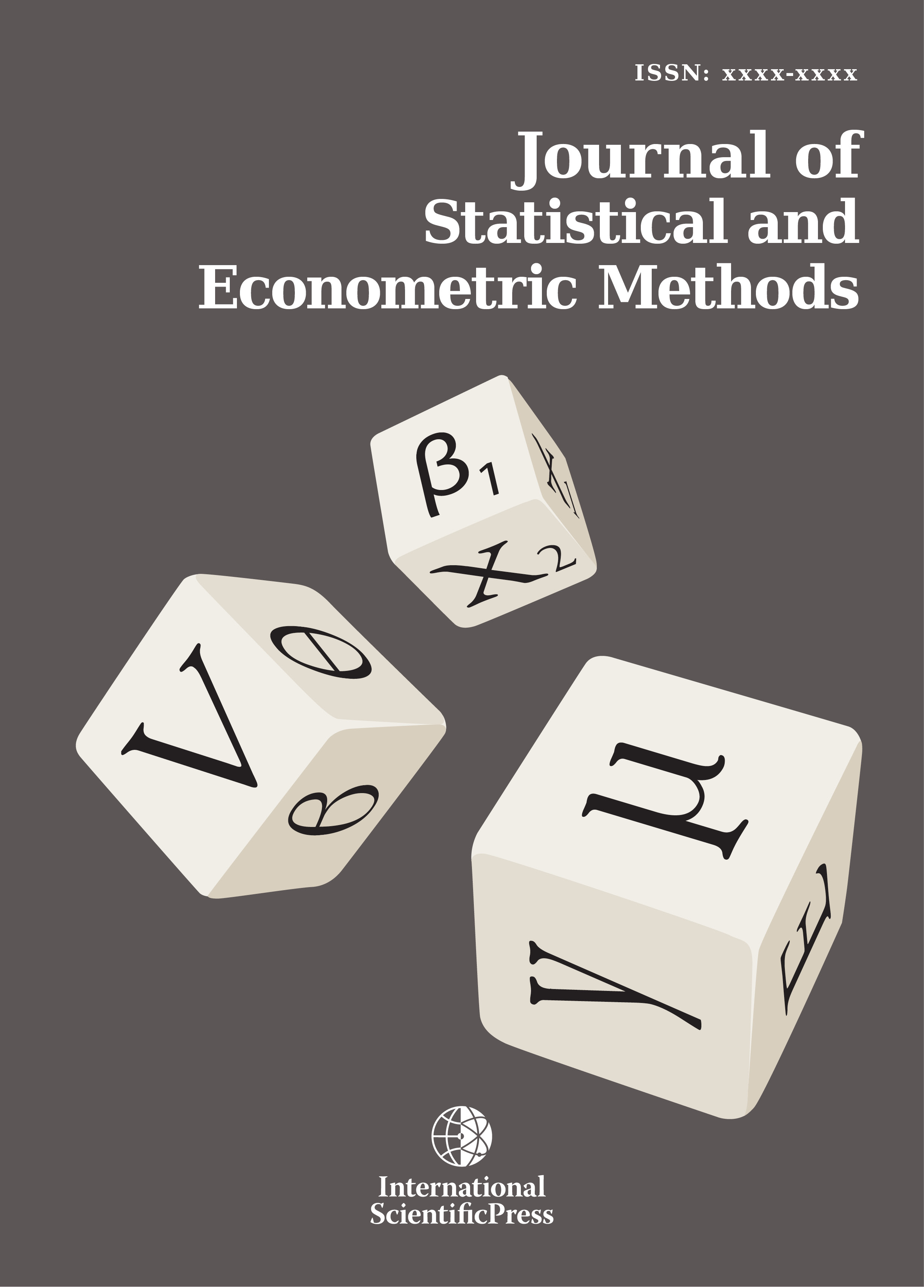Journal of Statistical and Econometric Methods
Granger Causality and Unit Roots
-
 [ Download ]
[ Download ]
- Times downloaded: 11999
-
Abstract
The asymptotic behavior of the Granger-causality test under stochastic nonstationarity is studied. Our results confirm that the inference drawn from the test is not reliable when the series are integrated to the first order. In the presence of deterministic components, the test statistic diverges, eventually rejecting the null hypothesis, even when the series are independent of each other. Moreover, controlling for these deterministic elements (in the auxiliary regressions of the test) does not preclude the possibility of drawing erroneous inferences. Grangercausality tests should not be used under stochastic nonstationarity, a property typically found in many macroeconomic variables.
